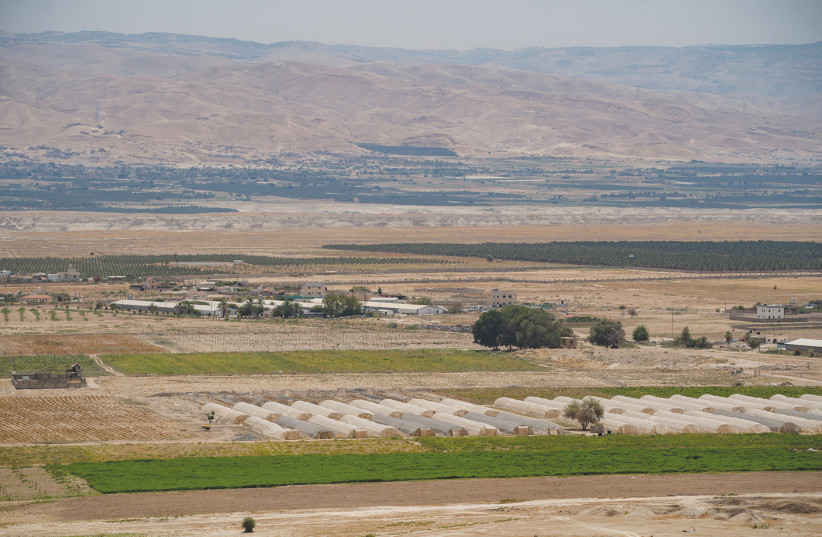The Mideast regional tour of US President Joe Biden will climax on Saturday with a Riyadh summit that will include the leaders of nine Arab countries, including leaders of all the Gulf Cooperation Council countries as well as the leaders of Jordan and Egypt.
For more stories from The Media Line go to themedialine.org
While President Biden is not planning to stop in Jordan or Egypt, the leaders of both countries that have signed peace treaties with Israel will be expected to be major defenders of Palestinian rights during the meeting. But most observers in Jordan believe that there is little political expectation from the visit, which will be mostly focused on economic issues, especially ways to increase oil output to help bring down the price of gasoline in the United States.
Amman-based political science professor and geopolitical expert Amer Al Sabaileh told The Media Line that the visit will help facilitate the return of Saudi power to the region.
“For Jordan, the visit has little direct meaning,” Sabaileh said. He believes that the American president's visit is meant to strengthen Israel and help return Saudi Arabian influence in the region so that it can be a major player for peace. “The fact that President Biden will be meeting directly with the Palestinian leadership means that this time around, Jordan will not have much of a political role.”
Jordanian political scientist Taghreed Odeh told The Media Line that the challenges facing the region range from cementing the cease-fire in Yemen, to movement in the Arab-Israel conflict, as well as standing up to the threat from Iran. “But for Jordan, the Palestinian issue is on the top of its priorities of issues that must be discussed with the American administration even though it is clear that the Biden Administration follows that of other US leaders in their bias toward Israel.”

“Jordan is one of the highest recipients of US aid in comparison to its population and, despite changes in the US administrations, the support has continued uninterrupted.”
Khaled Shnikat, political analyst, professor of political science
According to Odeh, Jordan is concerned about the ripple effect of the conflict in Ukraine, and especially its effect on the Russian presence in Syria and what might happen on the Jordan-Syria border, as well as how it influences the food supply chain.
Jordan's priorities
Former Jordanian member of parliament Hazem Qashou says that there are three areas that Jordan will concentrate on during the upcoming summit in Riyadh.
The first, Qashou says, is the Palestinian issue and the need to work on a mechanism to carry out the two-state solution to the Israel-Palestinian conflict. Jordan is also concerned about the Hashemite custodianship of the holy places in Jerusalem, he said.
The second area is security, especially considering that Iranian and Russian influences in Syria are serious. Third, according to Qashou, is Jordan’s place in the new regional body that the US wants to work with. The fact that Jordan is the military hub of the region means that it will benefit from any regional training, in light of the infrastructure in the area of military training that Jordan has developed in the past few years.
Khaled Shnikat, a political analyst and professor of political science in Jordan, believes that the most important issue to Jordan is the issue of US funding.
“Jordan is one of the highest recipients of US aid in comparison to its population and, despite changes in the US administrations, the support has continued uninterrupted,” Shnikat said. He also believes that among the practical issues Jordan is interested in is the need to continue to support the United Nations agency for Palestinian refugees,
UNRWA.
Munther Hiwarat, a journalist and political commentator, says that Jordan is hoping that concrete results can come out of the summit in Riyadh.
“Jordan’s aspirations are focused on the areas in which consensus can be developed at the summit. In the case of Palestine, it is hoped that Biden will agree to the serious movement of the two-state solution and that he appoints a special peace envoy. But all these hopes are unlikely, which means that for Palestine the visit is mostly a protocol
visit.”
Hiwarat told The Media Line that he expects that the US can protect Jordan from the pressure of reducing the role of the Hashemite custodianship. “On the positive end, Jordan is hoping that regional economic plans will be approved in the areas of energy, transport, and infrastructure,” he said.
The Amman-based Global Network on the Question of Palestine issued a statement about the upcoming summit saying that it has “strong reservations” with respect to further US and Arab policy shifts.
“We believe they amount to a repudiation of the international community’s responsibility to achieve a comprehensive, just, and durable peace that guarantees the inalienable rights of the Palestinian people,” the statement said.
